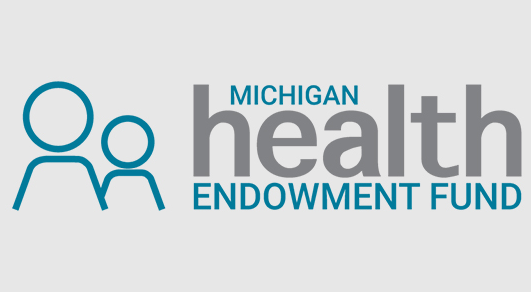Awards to support three research projects aimed at reducing health disparities
Three research teams at Wayne State University recently received grants totaling $460,305 from the Michigan Health Endowment Fund for projects aimed at improving the health of children and seniors in Michigan. Overall, the Michigan Health Endowment Fund awarded $8 million to 55 projects through the Health Fund’s Nutrition & Healthy Lifestyles and Community Health Impact programs.
“We are thrilled to partner with WSU on the Community Health Pipeline project, which will empower today’s youth to lead Detroit into a future that is more food secure and healthier for all residents,” said Laurie Solotorow, senior program officer for the Michigan Health Endowment Fund’s Nutrition & Healthy Lifestyles initiative. “Each of the grants awarded to WSU has a long-term impact on the community, which is what really drew the Health Fund as a partner.”
The Wayne State research projects will focus on inspiring future public health professionals, improve health-related public transportation and support families and patients at skilled nursing facilities. The Wayne State University projects include:
- Noel Kulik, Ph.D., assistant professor of kinesiology, health and sport studies and the Center for Health and Community Impact in the College of Education, received $262,784 for the project, “Community Health Pipeline: Youth as Catalysts for Change.” Kulik is working with Nate McCaughtry, Ph.D., professor and assistant dean, College of Education; Rachael Dombrowski, Ph.D., instructor, community health education, College of Education; and Whitney Moore, Ph.D., assistant professor of physical education, College of Education.
Dr. Kulik’s project will help youth from disadvantaged backgrounds in Detroit become leaders and empowered agents of change in the areas of food systems, health equity and food access. The project’s aim is to formalize relationships among organizations in Detroit, leverage ongoing and existing resources in the city, train youth leaders to address community problems using an action framework and participatory approach, support youth in post-secondary opportunities and address the lack of diversity in the community health profession. The project will expand education initiatives and include social entrepreneurship, skill development, and community health career exposure to engage youth and encourage community economic development. The project also will foster a college?going culture and support youth efforts to continue work in food access by offering hands?on university experiences in college readiness, food systems, health equity and community health principles.
- Rayman Mohamed, Ph.D., associate professor of urban studies and planning in the College of Liberal Arts and Sciences, received $99,987 for the project, “BusMe: An e-health Platform to Reduce Pediatric Health Disparities by Improving Public Transportation Access in Detroit.” Mohamed is working with Ming Dong, Ph.D., associate professor of computer science in the College of Engineering and Elizabeth Kuhl Towner, Ph.D., assistant professor of family medicine and public health sciences in the School of Medicine.
Their project seeks to reduce health disparities, particularly with children, who miss medical appointments due to lack of personal transportation or access to information on public transportation in Detroit. The shift to a technology-based culture further increases barriers for low-income families as they are less likely to have access to public transportation schedules. Strategies to improve public transportation access to medical visits for children from low-income backgrounds are critical. The research team will develop BusMe, an innovative software program that seeks to minimize pediatric health disparities by providing information about the most efficient bus routes from their home to their child’s health care provider, and texting patients this personalized information.
- Allen Goodman, Ph.D., professor of economics in the College of Liberal Arts and Sciences, received $97,534 for the project, “Real-Time Nursing Home Quality Control.” Goodman heads an inter-disciplinary project team that includes Heather Fritz, Ph.D., assistant professor of occupational therapy in the Eugene Applebaum College of Pharmacy and Health Sciences and the Institute of Gerontology, and Weisong Shi, Ph.D., professor of computer science in the College of Engineering.
Annually, over 1.3 million older adults receive care from Skilled Nursing Facilities (SNF) for a significant illness or injury that has limited their abilities to take care of themselves. SNF’s are important in preventing secondary medical conditions and reducing health care costs. In many states – including Michigan – there are large gaps in the quality of skilled nursing care in SNFs.
Goodman’s project will help to address these gaps by creating and evaluating the Nursing Home Checklist (NHC), an innovative smart phone/tablet-based application linked to in-facility and cloud backup servers. NHC seeks to reduce treatment errors and improve quality of care for many health care processes. This project will modify NHC for use by nurses, nursing aide staff, management staff, care managers and family members, ultimately improving resident care, quality of care, resident outcomes and staff accountability. In addition, it will reduce costs and provide important data and reports for Medicare/Medicaid evaluation.
“Wayne State and the Michigan Health Endowment Fund share a commitment to improve the health and well-being of youth and seniors in Michigan, said Heidi A. Coates, assistant vice president of corporate and foundation relations at Wayne State University. “Our partnership on these projects will make a meaningful difference in their daily lives.”


